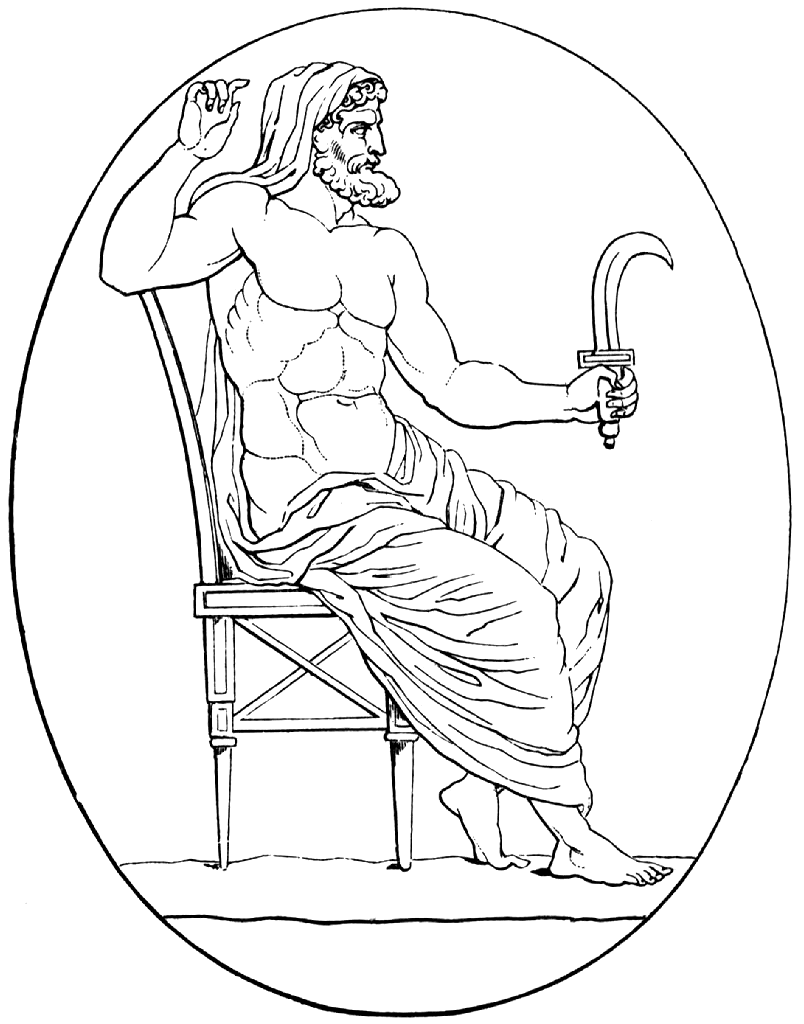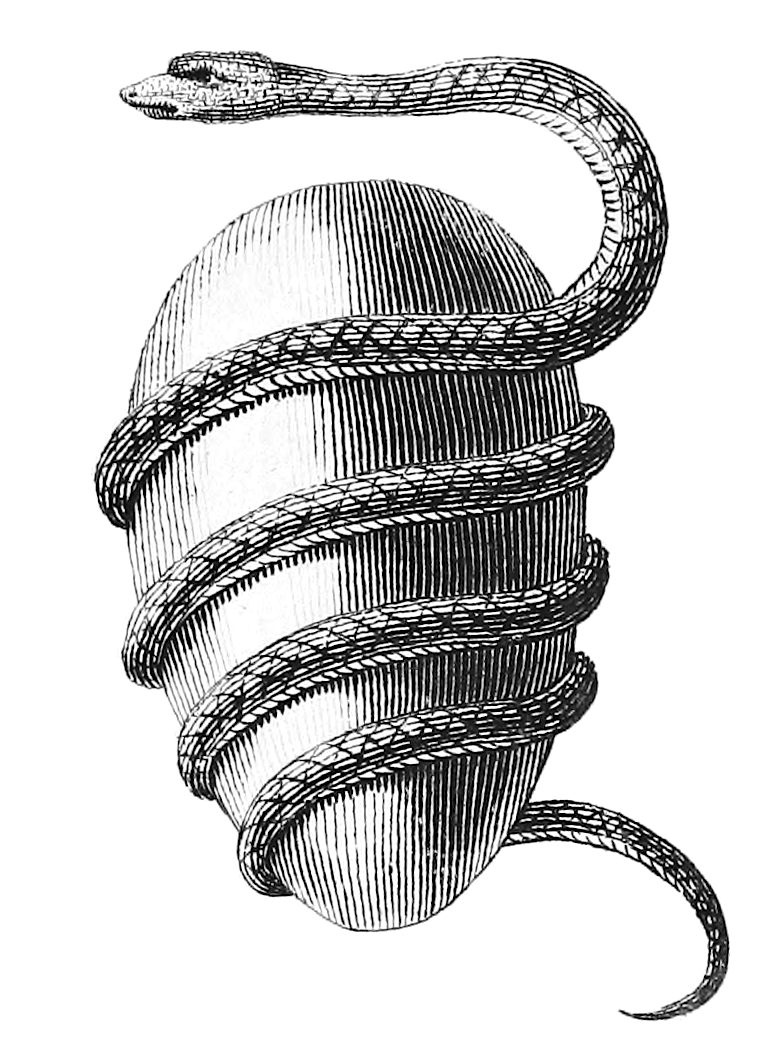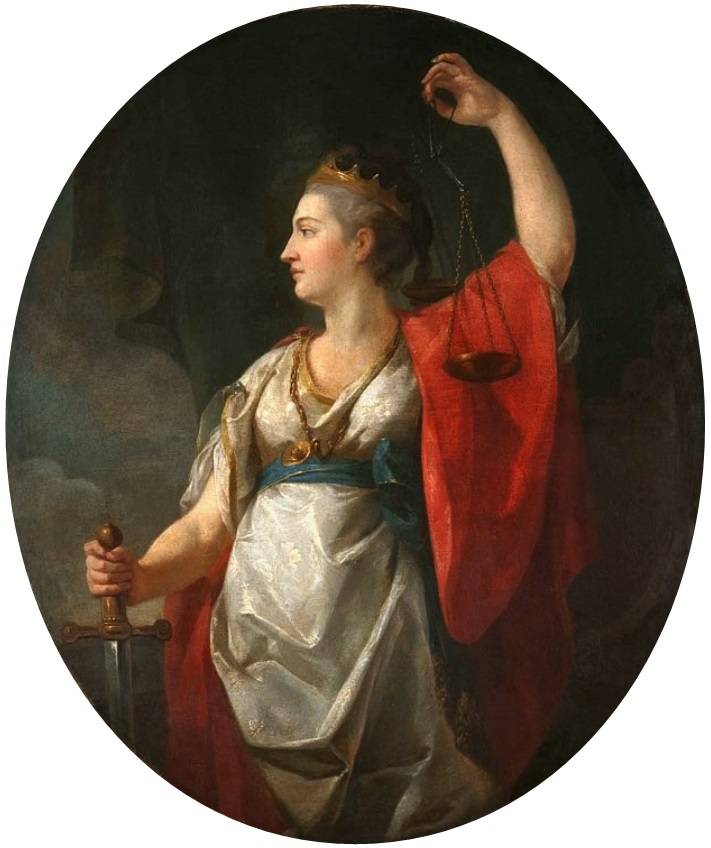|
Coeus
In Greek mythology, Coeus (; , "query, questioning" or "intelligence"), also called Polus, was one of the Titans, one of the three groups of children born to Uranus (Sky) and Gaia (Earth). Mythology Coeus was an obscure figure, and like most of the Titans he played no active part in Greek mythology—he appears only in lists of Titans—but was primarily important for his descendants. With his sister, "shining" Phoebe, Coeus fathered two daughters, Leto and Asteria. Leto copulated with Zeus (the son of fellow Titans Cronus and Rhea) and bore Artemis and Apollo. Asteria became the mother of Hecate by Perses (son of fellow Titan Crius and half-sister Eurybia). Along with the other Titans, Coeus was overthrown by Zeus and the other Olympians in the Titanomachy. Afterwards, he and all his brothers (sans Oceanus) were imprisoned in Tartarus by Zeus. Coeus, later overcome with madness, broke free from his bonds and attempted to escape his imprisonment, but was repelled by C ... [...More Info...] [...Related Items...] OR: [Wikipedia] [Google] [Baidu] |
Titan (mythology)
In Greek mythology, the Titans ( ; ) were the pre- Olympian gods. According to the ''Theogony'' of Hesiod, they were the twelve children of the primordial parents Uranus (Sky) and Gaia (Earth). The six male Titans were Oceanus, Coeus, Crius, Hyperion, Iapetus, and Cronus; the six female Titans—called the Titanides () or Titanesses—were Theia, Rhea, Themis, Mnemosyne, Phoebe, and Tethys. After Cronus mated with his older sister Rhea, she bore the first generation of Olympians: the six siblings Zeus, Hades, Poseidon, Hestia, Demeter, and Hera. Certain other descendants of the Titans, such as Prometheus, Atlas, Helios, and Leto, are sometimes also called Titans. The Titans were the former gods: the generation of gods preceding the Olympians. They were overthrown as part of the Greek succession myth, which tells how Cronus seized power from his father Uranus and ruled the cosmos with his fellow Titans before being in turn defeated and replaced as the ruling pantheon o ... [...More Info...] [...Related Items...] OR: [Wikipedia] [Google] [Baidu] |
Titans
In Greek mythology, the Titans ( ; ) were the pre-Twelve Olympians, Olympian gods. According to the ''Theogony'' of Hesiod, they were the twelve children of the primordial parents Uranus (mythology), Uranus (Sky) and Gaia (Earth). The six male Titans were Oceanus, Coeus, Crius, Hyperion (Titan), Hyperion, Iapetus, and Cronus; the six female Titans—called the Titanides () or Titanesses—were Theia, Rhea (mythology), Rhea, Themis, Mnemosyne, Phoebe (Titaness), Phoebe, and Tethys (mythology), Tethys. After Cronus mated with his older sister Rhea, she bore the first generation of Olympians: the six siblings Zeus, Hades, Poseidon, Hestia, Demeter, and Hera. Certain other descendants of the Titans, such as Prometheus, Atlas (mythology), Atlas, Helios, and Leto, are sometimes also called Titans. The Titans were the former gods: the generation of gods preceding the Twelve Olympians#Olympians, Olympians. They were overthrown as part of the Greek succession myth, which tells how Cron ... [...More Info...] [...Related Items...] OR: [Wikipedia] [Google] [Baidu] |
Asteria
In Greek mythology, Asteria or Asterie ( ; ) is a daughter of the Titans Coeus (Polus) and Phoebe and the sister of Leto. According to Hesiod, by the Titan Perses she had a single child, a daughter named Hecate, the goddess of witchcraft. Other authors made Asteria the mother of the fourth Heracles and Hecate by Zeus. Asteria is notable for her pursuit by the amorous god Zeus, who desired her. In order to escape him and his advances, she transformed herself into a bird and then a wandering island. When her sister Leto, impregnated by Zeus, went into labour, Asteria was the only place on earth willing to receive her, defying Hera's orders that forbade Leto any shelter. After Apollo and Artemis were born on her, the island received the name of Delos, and Apollo fixed it in place, making it his sacred land. Etymology The goddess's name "Asteria" (Ancient Greek , translit. ''Astería'') is derived from the Greek word (''astḗr'') meaning "star". itself is inherited from ... [...More Info...] [...Related Items...] OR: [Wikipedia] [Google] [Baidu] |
Theogony
The ''Theogony'' () is a poem by Hesiod (8th–7th century BC) describing the origins and genealogy, genealogies of the Greek gods, composed . It is written in the Homeric Greek, epic dialect of Ancient Greek and contains 1,022 lines. It is one of the most important sources for the understanding of early Greek cosmology. Descriptions Hesiod's ''Theogony'' is a large-scale synthesis of a vast variety of local Greece, Greek traditions concerning the gods, organized as a narrative that tells how they came to be and how they established permanent control over the cosmos. It is the first known Greece, Greek mythical cosmogony. The initial state of the universe is Chaos (mythology), chaos, a dark indefinite void considered a divine primordial condition from which everything else appeared. Theogonies are a part of Greek mythology which embodies the desire to articulate reality as a whole; this universalizing impulse was fundamental for the first later projects of speculative theorizing ... [...More Info...] [...Related Items...] OR: [Wikipedia] [Google] [Baidu] |
Leto
In ancient Greek mythology and Ancient Greek religion, religion, Leto (; ) is a childhood goddess, the daughter of the Titans Coeus and Phoebe (Titaness), Phoebe, the sister of Asteria, and the mother of Apollo and Artemis.Hesiod, ''Theogony'404–409/ref> In the Olympian scheme, the king of gods Zeus is the father of her twins, Apollo and Artemis, whom Leto conceived after her hidden beauty accidentally caught the eye of Zeus. During her pregnancy, Leto sought for a place where she could give birth to Apollo and Artemis, since Hera, the wife of Zeus, in her jealousy, ordered all lands to shun her and deny her shelter. Hera is also the one to have sent the monstrous serpent Python (mythology), Python and the giant Tityos against Leto to pursue and harm her. Leto eventually found an island, Delos, that was not joined to the mainland or attached to the ocean floor, therefore it was not considered land or island and she could give birth. In some stories, Hera further tormented L ... [...More Info...] [...Related Items...] OR: [Wikipedia] [Google] [Baidu] |
Phoebe (Titaness)
In ancient Greek religion and Greek mythology, mythology, Phoebe ( ; ) is one of the first generation of Titan (mythology), Titans, who were one set of sons and daughters of Uranus (mythology), Uranus and Gaia, the sky and the earth.Hesiod, ''Theogony'116-138 With her brother and consort Coeus she had two daughters, Leto and Asteria. She is thus the grandmother of the Olympian gods Apollo and Artemis, as well as the witchcraft goddess Hecate. According to the myth, she was the original owner of the site of the Oracle of Delphi before gifting it to her grandson Apollo. Her name, meaning "bright", was also given to a number of lunar goddesses like Artemis and later the Roman goddesses Luna (goddess), Luna and Diana (mythology), Diana, but Phoebe herself was not actively seen as a moon goddess in her own right in ancient religion or mythology. Etymology The Greek name ''Phoíbē'' is the feminine form of ''Phoîbos'' meaning "pure, bright, radiant", an epithet given to Apollo a ... [...More Info...] [...Related Items...] OR: [Wikipedia] [Google] [Baidu] |
Gaia
In Greek mythology, Gaia (; , a poetic form of ('), meaning 'land' or 'earth'),, , . also spelled Gaea (), is the personification of Earth. Gaia is the ancestral mother—sometimes parthenogenic—of all life. She is the mother of Uranus (Sky), with whom she conceived the Titans (themselves parents of many of the Olympian gods), the Cyclopes, and the Giants, as well as of Pontus (Sea), from whose union she bore the primordial sea gods. Her equivalent in the Roman pantheon was Terra.''Larousse Desk Reference Encyclopedia'', The Book People, Haydock, 1995, p. 215. Etymology The Greek name (''Gaia'' or ) is a mostly epic, collateral form of Attic (''Gē'' ), and Doric (''Ga'' ), perhaps identical to (''Da'' ), both meaning "Earth". Some scholars believe that the word is of uncertain origin. Beekes suggested a probable Pre-Greek origin. Robert S. P. Beekes, ''Etymological Dictionary of Greek'', Brill, 2009, pp. 269–270 (''s.v.'' "γῆ"). M.L. West derives the na ... [...More Info...] [...Related Items...] OR: [Wikipedia] [Google] [Baidu] |
Rhea (mythology)
Rhea or Rheia (; Ancient Greek: Ῥέα or Ῥεία ) is a mother goddess in ancient Greek religion and mythology, the Titan daughter of the earth goddess Gaia and the sky god Uranus, himself a son of Gaia. She is the older sister of Cronus, who was also her consort, and the mother of the five eldest Olympian gods ( Hestia, Demeter, Hera, Poseidon, and Zeus) and Hades, king of the underworld. When Cronus learnt that he was destined to be overthrown by one of his children like his father before him, he swallowed all the children Rhea bore as soon as they were born. When Rhea had her sixth and final child, Zeus, she spirited him away and hid him in Crete, giving Cronus a rock to swallow instead, thus saving her youngest son who would go on to challenge his father's rule and rescue the rest of his siblings. Following Zeus's defeat of Cronus and the rise of the Olympian gods into power, Rhea withdraws from her role as the queen of the gods to become a supporting fig ... [...More Info...] [...Related Items...] OR: [Wikipedia] [Google] [Baidu] |
Uranus (mythology)
In Greek mythology, Uranus ( , also ), sometimes written Ouranos (, ), is the personification of the sky and one of the Greek primordial deities. According to Hesiod, Uranus was the son and husband of Gaia (Earth), with whom he fathered the first generation of Titans. However, no Cult (religious practice), cult addressed directly to Uranus survived into classical times, and Uranus does not appear among the usual themes of Ancient Greek pottery, Greek painted pottery. Elemental Earth, Sky, and Styx might be joined, however, in solemn invocation in Homeric epic. The translation of his name in Latin is Caelus. Etymology Most linguists trace the etymology of the name to a Proto-Greek form ''*Worsanós'' (), enlarged from *''ṷorsó-'' (also found in Greek ''()'' 'to urinate', Sanskrit ''varṣá'' 'rain', Hittite language, Hittite ''ṷarša-'' 'fog, mist').Robert S. P. Beekes, ''Etymological Dictionary of Greek'', vol. 2 (Leiden: Brill, 2009), 1128–1129. The basic Proto-Ind ... [...More Info...] [...Related Items...] OR: [Wikipedia] [Google] [Baidu] |
Greek Mythology
Greek mythology is the body of myths originally told by the Ancient Greece, ancient Greeks, and a genre of ancient Greek folklore, today absorbed alongside Roman mythology into the broader designation of classical mythology. These stories concern the ancient Greek religion's view of the Cosmogony, origin and Cosmology#Metaphysical cosmology, nature of the world; the lives and activities of List of Greek deities, deities, Greek hero cult, heroes, and List of Greek mythological creatures, mythological creatures; and the origins and significance of the ancient Greeks' cult (religious practice), cult and ritual practices. Modern scholars study the myths to shed light on the religious and political institutions of ancient Greece, and to better understand the nature of mythmaking itself. The Greek myths were initially propagated in an oral tradition, oral-poetic tradition most likely by Minoan civilization, Minoan and Mycenaean Greece, Mycenaean singers starting in the 18th century&n ... [...More Info...] [...Related Items...] OR: [Wikipedia] [Google] [Baidu] |
The Greek Myths
''The Greek Myths'' (1955) is a mythography, a compendium of Greek mythology, with comments and analyses, by the poet and writer Robert Graves. Many editions of the book separate it into two volumes. Abridged editions of the work contain only the myths and leave out Graves's commentary. Each myth is presented in the voice of a narrator writing under the Antonines, such as Plutarch or Pausanias, with citations of the classical sources. The literary quality of his retellings is generally praised. Following each retelling, Graves presents his interpretation of its origin and significance, influenced by his belief in a prehistoric Matriarchal religion, as discussed in his book ''The White Goddess'' and elsewhere. Graves's theories and etymologies are rejected by most classical scholars. Graves argued in response that classical scholars lack "the poetic capacity to forensically examine mythology". Contents Graves interpreted Bronze Age Greece as changing from a matriarchal soci ... [...More Info...] [...Related Items...] OR: [Wikipedia] [Google] [Baidu] |
Themis
In Greek mythology and religion, Themis (; ) is the goddess and personification of justice, divine order, law, and custom. She is one of the twelve Titan children of Gaia and Uranus, and the second wife of Zeus. She is associated with oracles and prophecies, including the Oracle of Delphi. Name ''Themis'' means "divine law" rather than human ordinance, literally "that which is put in place", from the Greek verb ''títhēmi'' ( τίθημι), meaning "to put." To the ancient Greeks she was originally the organizer of the "communal affairs of humans, particularly assemblies." Moses Finley remarked of ''themis'', as the word was used by Homer in the 8th century BCE, to evoke the social order of the 10th- and 9th-century Greek Dark Ages: Finley adds, "There was ''themis''—custom, tradition, folk-ways, ''mores'', whatever we may call it, the enormous power of 'it is (or is not) done'." In the ''Hymn to Apollo'', Themis is referred to as " Ichnaea", meaning "Tracker". Descr ... [...More Info...] [...Related Items...] OR: [Wikipedia] [Google] [Baidu] |









